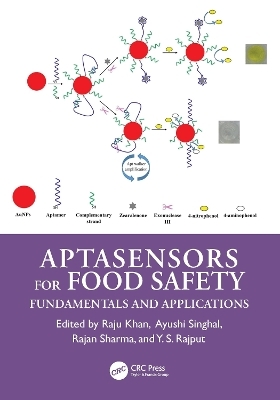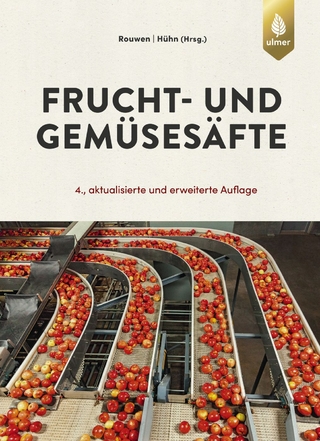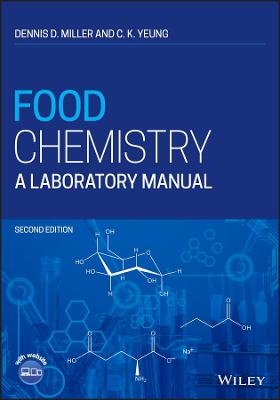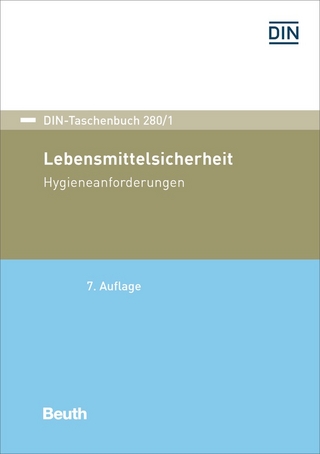
Aptasensors for Food Safety
CRC Press (Verlag)
978-1-032-41998-5 (ISBN)
This reference book provides updated knowledge on fundamentals and applications of aptasensors
in food science. It discusses aptamer selection strategies including Systematic Evolution of Ligands
through EXponential enrichment (SELEX), Capture SELEX, Cell SELEX, and GO SELEX strategies
for aptasensor design involving well-studied and newly emerged nanomaterials, food analysis
focusing on its safety, aptasensing techniques relevant to detection of food pathogens, pesticides,
veterinary drug residues, toxins, heavy metals, allergens, and future perspectives of aptamers in
food science and technology. The book focuses on recent developments in aptasensors and their use
in detection of contaminants in food. The book is an excellent resource for R&D organizations
dedicated to the development of biosensors in general and aptasensors in particular for the detection
of environmental contaminants in the food supply chain. Also, the contents of the book will
be useful to researchers, postgraduate students, analytical chemists, food scientists, and regulatory
authorities.
Dr. Raju Khan, currently works as a Senior Principal Scientist and Professor at CSIR- Advanced Materials Processes and Research Institute, Bhopal, Madhya Pradesh, India. He earned an MSc Chemistry and PhD Chemistry from Jamia Millia Islamia, Central University, New Delhi, India. He has worked as a Postdoctorate at the University of the Western Cape, Cape Town, South Africa, Young Scientist at CSIR- National Physical Laboratory, New Delhi, India, and Visiting Scientist at the University of Texas at San Antonio (UTSA), USA. He has been awarded Fellow of Royal Society of Chemistry (FRSC) and also a reputed BOYSCAST Fellowship, Goverment of India. His achievements include Scientific Advisor for FSSAI, Goverment of India, a Life Member of the Materials Research Society of India, and Member of the International Advisory Committee, DST, Goverment of India. His work has also been highlighted in Nature India. He has published more than 180 articles with a high citation score of more than 5000 in several renowned journals including 45 book chapters by esteemed publishers, editing 25 books with various reputed publishers and several patents filed. He has several ongoing projects and completed, including international scientific collaborations with collaborators in the USA, Czech Republic, and Russia. Ayushi Singhal is currently pursuing her joint doctorate from RMIT University, Melbourne, Australia, and AcSIR-CSIR AMPRI, Bhopal, India. She completed her post-graduate work for her MSc (Environmental Chemistry) from Jiwaji University, Gwalior, in 2019. She is a DST- INSPIRE Fellow and joined as a PhD Chemical Sciences candidate in CSIR- AMPRI, Bhopal. Her research inclination is toward the synthesis of molecularly imprinted polymers, fabrication of biosensors, and applications of biosensors in analysis and monitoring of environmental pollutants in different matrices. She has authored/edited six review articles, seven book chapters, and one book. Dr. Rajan Sharma is presently serving as Joint Director (Research) at ICAR- National Dairy Research Institute (ICAR- NDRI), Karnal, India. His specialization is in Dairy Chemistry and he earned his PhD from ICAR- NDRI, Karnal, India. He has 25 years of research and teaching experience. He has guided 20 Master's and 11 PhD students. His area of research includes aptamerbased detection methods, rapid tests for the detection of adulterants/contaminants in milk, lateral flow assay for detection of contaminants in milk, etc. Dr. Sharma has filed 16 patents, out of which 14 have been granted. Many of the technologies (in total 10) developed by his group at ICARNDRI related to rapid detection of adulteration in milk have been commercialized. Dr. Sharma has contributed as a Chairman of Scientific Panel on “Methods of Sampling and Analysis” constituted by the Food Safety & Standards Authority of India. He is also a Fellow of the National Academy of Agricultural Sciences (India) and National Academy of Dairy Sciences (India). Dr. Sharma received the Biotech Product and Process Development and Commercialization Award 2020, Bharat Ratna Dr. C Subramaniam Award for Outstanding Teachers Award 2019, Low-Cost Technology Development Award 2016, NRDC Meritorious Invention Award 2013, Indo-US Norman E. Borlaug International Agricultural Science & Technology Fellows Program (2007–08) from the USDA’s Foreign Agricultural Service, USA under the Indo- US Agricultural Knowledge Initiative and Erasmus Mundus Visiting Professor Scholarship for one month (2012) from Sefotechnut, Belgium for the Dublin Institute of Technology, Ireland. He has contributed more than 115 research articles in reputed journals. Dr. Y.S. Rajput is a superannuated scientist after serving as Head, Animal Biochemistry Division; Head, Dairy Chemistry Division, Emeritus Scientist; and other scientific positions at the National Dairy Research Institute, Karnal, India. He has more than 40 years of research and teaching experience. He earned his PhD from the Indian Institute of Technology, New Delhi. His areas of interest include aptamer selection against aflatoxin M1 and β- casomorphin-7, identification of truncated aptamers, methods for evaluation of recognition of targets by aptamers, electrochemical aptasensors, urea sensors, synthesis of gold nanoparticles and the development of gold nanoparticle-based detection methods, molecularly imprinted polymers, enzyme conjugates, milk quality assurance, and stem cells. Dr. Rajput has filed 13 patents, which have been granted. He has developed technologies have been licensed through 43 agreements to industrial houses. As a visiting faculty member, he has worked at the University of Wisconsin, USA and the University of Guelph, Canada. He has more than 100 research articles to his name. He is a Fellow of the National Academy of Agricultural Sciences (India) and National Academy of Dairy Sciences (India). Dr. Rajput is recipient of NRDC Meritorious Invention Award, Sukumar Basu Memorial Award, Dr. K K Iya Award and Low-Cost Technology Award. He has guided 10 Doctoral and 13 Master's students. He has recently edited a book, Enzymes Beyond Traditional Applications in Dairy Science and Technology, published by Elsevier, Academic Press, in 2023.
1. Food Safety- Innovative Analytical Tools For Safety Assessment. 2. Current Existing Techniques For Food Analysis. 3. Fundamentals Of Aptamers And Aptamers-Based Biosensors. 4. Overview Of Aptamer Selection And Immobilization Techniques. 5. Advances In SELEX Methods. 6. Aptamer-Based Lateral Flow Assays. 7. Nanomaterials Based Aptasensors & Its Significance. 8. Various Detection Techniques For Aptasensing. 9. Aptamers Based Sensors Diagnostic For Food Pathogens. 10. Detection Of Chemical Contaminants & Residues Using Aptasensors In Food Samples. 11. Aptasensors Based Detection: A Journey For Toxin Detection In Food. 12. Role Of Aptasensors For Determination Of Heavy- Metal In Food. 13. Potential Of Aptasensors For Pesticides Analysis. 14. Aptasensors For Veterinary Drug Residue Analysis In Food. 15. Analysis Of Adulterants And Allergens In Food Using Aptasensors. 16. Role And Significance Of Aptamers In Food Safety & Quality Assessment. 17. Conclusion & Future Perspectives Of Aptamers In Food Science & Technology
| Erscheinungsdatum | 04.09.2024 |
|---|---|
| Zusatzinfo | 25 Tables, black and white; 91 Line drawings, color; 8 Halftones, color; 99 Illustrations, color |
| Verlagsort | London |
| Sprache | englisch |
| Maße | 178 x 254 mm |
| Gewicht | 988 g |
| Themenwelt | Technik ► Lebensmitteltechnologie |
| ISBN-10 | 1-032-41998-9 / 1032419989 |
| ISBN-13 | 978-1-032-41998-5 / 9781032419985 |
| Zustand | Neuware |
| Haben Sie eine Frage zum Produkt? |
aus dem Bereich


